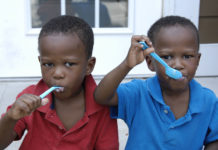
Family trees of 400 million people show genetics has limited influence on longevity
Although long life tends to run in families, genetics has far less influence on life span than previously thought, according to a new analysis of an aggregated set of family trees of more than 400 million people. The research was published in GENETICS, a journal of the Genetics Society of America.
“We can potentially learn many things about the biology of aging from human genetics, but if the heritability of life span is low, it tempers our expectations about what types of things we can learn and how easy it will be,” said lead author Graham Ruby. Researchers used publicly available pedigree data from Ancestry.com to estimate the heritability of human life span.
Heritability is a measure of how much of the variation in a trait – in this case lifespan – can be explained by genetic differences, as opposed to non-genetic differences like lifestyle, sociocultural factors, and accidents. Previous estimates of human life span heritability have ranged from around 15 to 30 percent.
This correlation between spouses could be due to the many non-genetic factors that accompany living in the same household–their shared environment.
The study included over 400 million people, largely Americans of European descent – each connected to another by either a parent-child or a spouse-spouse relationship. The team was then able to estimate heritability from the tree by examining the similarity of life span between relatives.
The researchers focused on relatives who were born across the 19th and early 20th centuries, finding heritability estimates for siblings and first cousins to be roughly the same as previously reported. But, as was also observed in some of the previous studies, they noted that the life span of spouses tended to be correlated–they were more similar, in fact, than in siblings of opposite gender.
This correlation between spouses could be due to the many non-genetic factors that accompany living in the same household–their shared environment. The finding that a person’s sibling’s spouse’s sibling or their spouse’s sibling’s spouse had a similar life span to their own – despite not being blood relatives and not generally sharing households was due to assortative mating, commented the researchers.
Assortative mating means people tend to select partners with traits like their own–in this case, how long they live.
The basis of this mate choice could be genetic or sociocultural–or both. For example, if income influences life span, and wealthy people tend to marry other wealthy people, that would lead to correlated longevity. The same would occur for traits more controlled by genetics: if, for example, tall people prefer tall spouses, and height is correlated in some way with how long you live, this would also inflate estimates of life span heritability.
By correcting for these effects of assortative mating, the new analysis found life span heritability is likely no more than 7 percent.












